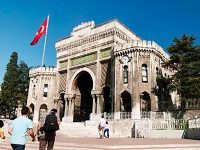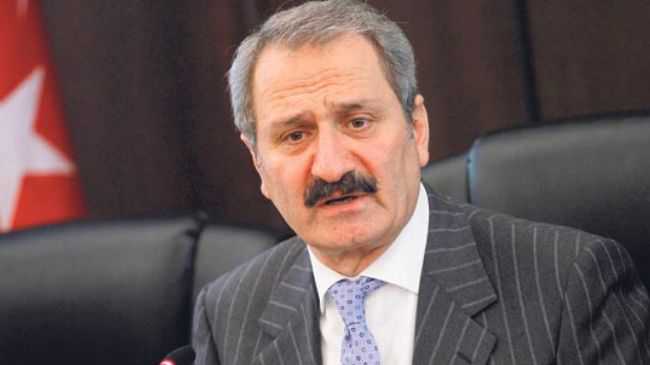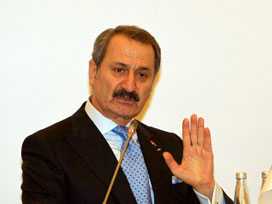Earlier this year, the Ministry of Economy of Turkey announced the economic areas that would be provided with government support. They include such industries as education, medical tourism, film and science. Turkey’s Economy Ministry announced that one of the priorities would be creation of an equivalent of Hollywood and Bollywood. The name of the new production company would be Turkeywood.
 The government will provide financial support to studios producing Turkish films. In addition, the Turkish government promised to help those who represent the country’s film production at the international level. This initiative was discussed on numerous occasions, and in 2011 Economy Minister Zafer Caglayan met with representatives of the film industry of Turkey to speak about it.
The government will provide financial support to studios producing Turkish films. In addition, the Turkish government promised to help those who represent the country’s film production at the international level. This initiative was discussed on numerous occasions, and in 2011 Economy Minister Zafer Caglayan met with representatives of the film industry of Turkey to speak about it.
According to the world’s analysts, the Turkish economy has reached a new level. This is evident from the country’s position in the world, growing volume of foreign investment, and reduction of unemployment. The dynamic private sector that recently received government support in the form of low interest rates and tax incentives for private entrepreneurs is also worth mentioning.
As noted by the current Minister of Economy Mehmet Simsek, a key element of the development of the Turkish economy is attracting foreign capital. According to him, last year, Turkey recorded the highest number of financial mergers that confirm financial inflows from abroad. The Minister believes it to be an indicator of a very effective year in terms of increasing amounts of foreign investment.
According to specialists of Ernst & Young, an international auditing and consultancy firm, in the past year alone there were over 180 mergers and acquisitions of local companies in Turkey, and over 130 of international ones. The total value of these companies, according to the Minister of the Economy, is approximately $23 billion dollars, but, according to experts from Ernst & Young, this number may exceed $30 billion, as many business owners refuse to disclose the cost of transactions.
For comparison, Mehmet Simsek cited data for 2009 and 2011. In 2009 the total value of transactions amounted to $3.9 billion, and in 2011 – $11 billion. The Minister argued that this sharp increase in foreign investment had a positive effect on the growth of the Turkish economy. Furthermore, many foreign investors are confident in the restoration of the Turkish economy after the financial crisis.
As noted by a corporate financial manager of the Turkish unit of Ernst & Young, the most attractive sectors for foreign entrepreneurs are considered to be light industry and energy.
One of the priority sectors that would be receiving government support, according to Minister Simsek, is medical tourism. Currently, some major countries are facing serious health challenges that would allow Turkey to provide substantial support to the economy through medical tourism.
Opportunities in the provision of health services were discussed in January of this year at the exhibition Istanbul Health Expo. According to the head of the Istanbul Medical Tourism Association, today many foreign nationals, for example, people from Russia or the United States, are dissatisfied with the quality of medical services at home and looking for suitable clinics abroad. At the moment Turkey is not as popular in this respect as other countries, and the government should change the situation as soon as possible.
In addition, it was stressed that Turkey should make an effort to announce the developments in the field of health care. Currently, this budget sector is estimated at $100 billion. This information was confirmed by a representative of an American medical consulting firm who noted that many U.S. citizens were dissatisfied with the quality of medical services and expertise of local doctors. Every year, over 1.5 million of U.S. citizens choose to be treated abroad and spend approximately $20 billion for services of foreign doctors each year.
Despite the improvement in the economic situation in the country, many analysts do not have an overly optimistic outlook, considering that the situation is still far from acceptable. According to the Minister of Economy Mehmet Simsek, Turkey’s GDP in 2012 was not high. In addition, in 2012 the budget of the country incurred costs in the amount of 360 million Turkish Liras, while revenues to the Treasury amounted to only 331 million.
However, analysts of the Ministry of the Economy noted that in the last months of 2012 there was a decline in inflation to five percent. According to the Minister of the Economy, this trend will continue in 2013. In addition, he noted that the government was making every effort to keep the inflation at that level.
Certain proposed laws will make the lives of ordinary citizens more difficult. For example, in January of 2013 the Turkish government approved a new tax rate on real estate purchases. If previously the tax rate was one percent of the purchase price, now it may reach 18 percent. The new law was met with criticism, but the government indicated that it would come into effect.
Analysts believe that the government is seriously engaged in supporting the economy. Only in 2013 over 1 million jobs will be created. As noted by Mehmet Simsek, the EU will create no more than 400,000 jobs this year.
In addition to film and medicine, the Turkish authorities turned to research activities. Last year, the Global Competitiveness Report for 2011-2012 ranked Turkey 59th out of 142 countries. Interestingly, in terms of availability of engineering and scientific personnel the country is in 44th place, while in terms of quality and effectiveness of research institutions it was ranked 89th. This situation, according to the representatives of Turkey, deserves close attention of the government.
According to local media, the country has already implemented the “National Strategy for the development of science, technology and innovation for 2011-2016”, which provides for support to research organizations. In addition, the government plans to provide substantial support to the education sector. Currently, scientists working in Turkish universities represent the majority of Turkish scientists, over 65 percent. But, despite this, the country is experiencing an acute shortage of specialists in the field of computer science and mathematics.
Sergei Vasilenkov
Pravda.Ru




